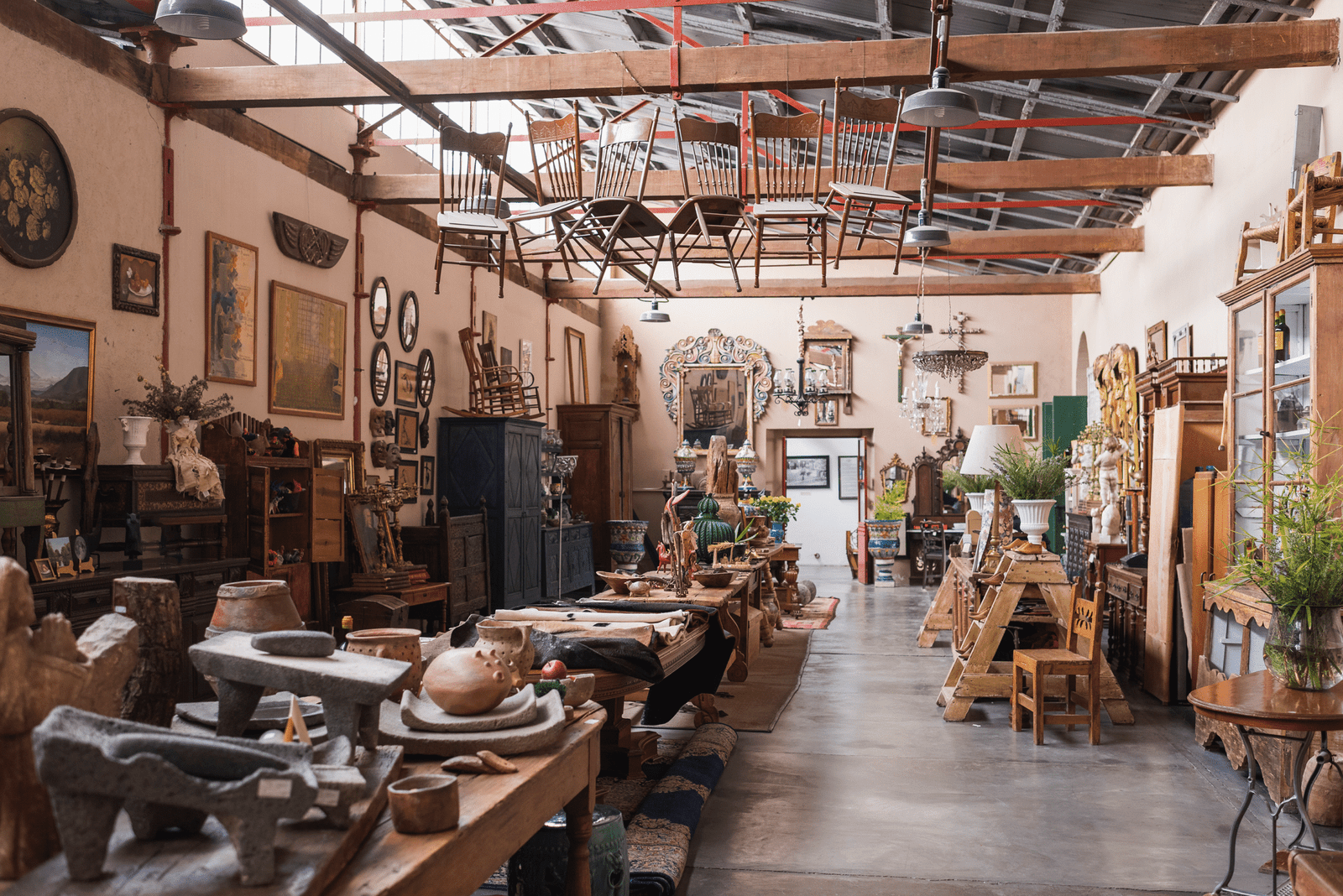:max_bytes(150000):strip_icc():format(jpeg)/GettyImages-1190023746-8a67e288c0214a00b54d10abfc51d41b.png)
Shopping at an antique shop is not the same as shopping at a big box store. You’re dealing with items that are decades old, may have surfaces scratches, and whose price can potentially be negotiated. The process of shopping for antique furniture and dishes is a little more nuanced than regular shopping, so if you’re an aspiring antiques hunter, there are a couple of unspoken rules to abide by.
To gain insight into the fascinating world of antique shopping, we turned to antique expert Debbie Mathews LeRoy. She shares what to expect, how the process works, and the answer to everyone’s biggest question: can you negotiate an item’s price? Read on for the five faux pas to avoid to score timeless treasures that’ll add character to your home for years to come.
Debbie Mathews LeRoy is the owner and principal designer of the Nashville-based Debbie Mathews Antiques & Designs. She has been buying and selling antiques for more than three decades.
1. Making a Lowball Offer
One of the biggest questions people have about antique shopping is what’s appropriate when it comes to asking for discount. “If you are seriously interested, I would not make a lowball offer,” Mathews LeRoy says.
She shares that most antique stores will consider a discount of 10-20%, but making an offer that is 50% or more below the listed price can be insulting and will likely decrease your chances of successfully purchasing the item. “Instead, I recommend asking for your name to be put on a list should it be marked down in the future,” she says.
2. Not Asking Whether the Price Is Negotiable When Appropriate
While making a lowball offer is a major faux pas, Mathews LeRoy says there are times when it is appropriate to ask whether the price on an item is negotiable. “If you have been eyeing an item for a year or longer and it hasn’t sold, I think making an offer that is within 75% of the price listed is reasonable,” she says.
However, if the item you’re looking at is fairly new to the antique shop’s inventory, the dealer may be less inclined to negotiate the price. “For items that have been around for a while, they may be willing to sell at a reduced price, and you also might be able to successfully negotiate on an item that is slightly damaged, especially if the dealer does not want to repair it,” the expert says.
3. Having Unrealistic Expectations
Purchasing something at an antique shop is not the same as buying a new item online or at a brick and mortar store. “When antique shopping, it’s important to have realistic expectations,” Mathews LeRoy says. A true antique is 100 years old or older, which means it will most likely not be in perfect condition. The expert shares that many antiques have imperfections, whether it’s scratches or discoloration, but these often add their own unique charm and patina.
For example, it you are looking for something specific such as an antique farm table, Mathews LeRoy says you will most likely not find one without any scratches or dings. What she says is important is that an antique piece of furniture is sturdy and if it has drawers, that they are in working order. “Keep in mind that these pieces have potentially traveled extensively or have been exposed to varying environments, so perfection is often unrealistic,” she says.
If the scratches and dings bother you, she suggests hiring an expert for touch ups or to make minor repairs. The bottom line is, if perfection is what you are after, then an antique piece may not be the right choice for you.
4. Buying an Antique You’re on the Fence About
If you found an antique you love but the price is higher than you feel comfortable paying and you’re not 100% sure about the item’s value, don’t feel pressured to make the purchase. “I don’t think it’s a mistake to pass up a piece, especially if you are unsure of its authenticity or are on the fence about it,” Mathews LeRoy says.
Whenever possible, do your research to make sure you know what you are buying and the price you are paying is fair. “The last thing you want to experience is buyer’s remorse—there will always be another piece in the future,” she says.
5. Making Impulsive Purchases
“It’s important to practice patience when antique shopping as you don’t want to get stuck with something you dislike,” Mathews LeRoy says. If you spot something you like as soon as you walk in the door, unless it’s something you’ve been searching for or you absolutely love and can’t pass up, hold off on making an immediate purchase.
Walk through the entire store or through all the booths, do your research when possible, consider whether it’s a good investment, and think about whether the item will work in your space.

